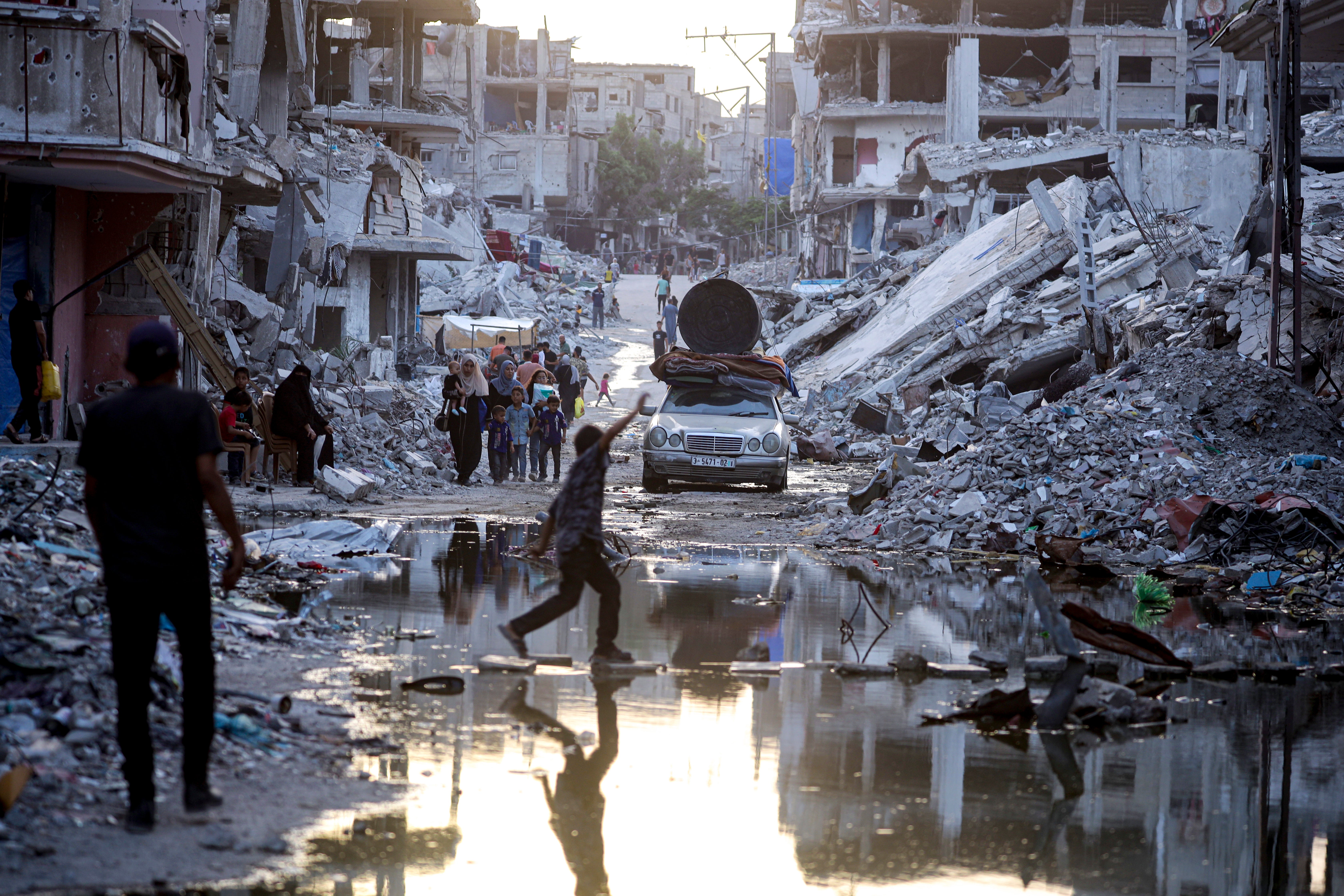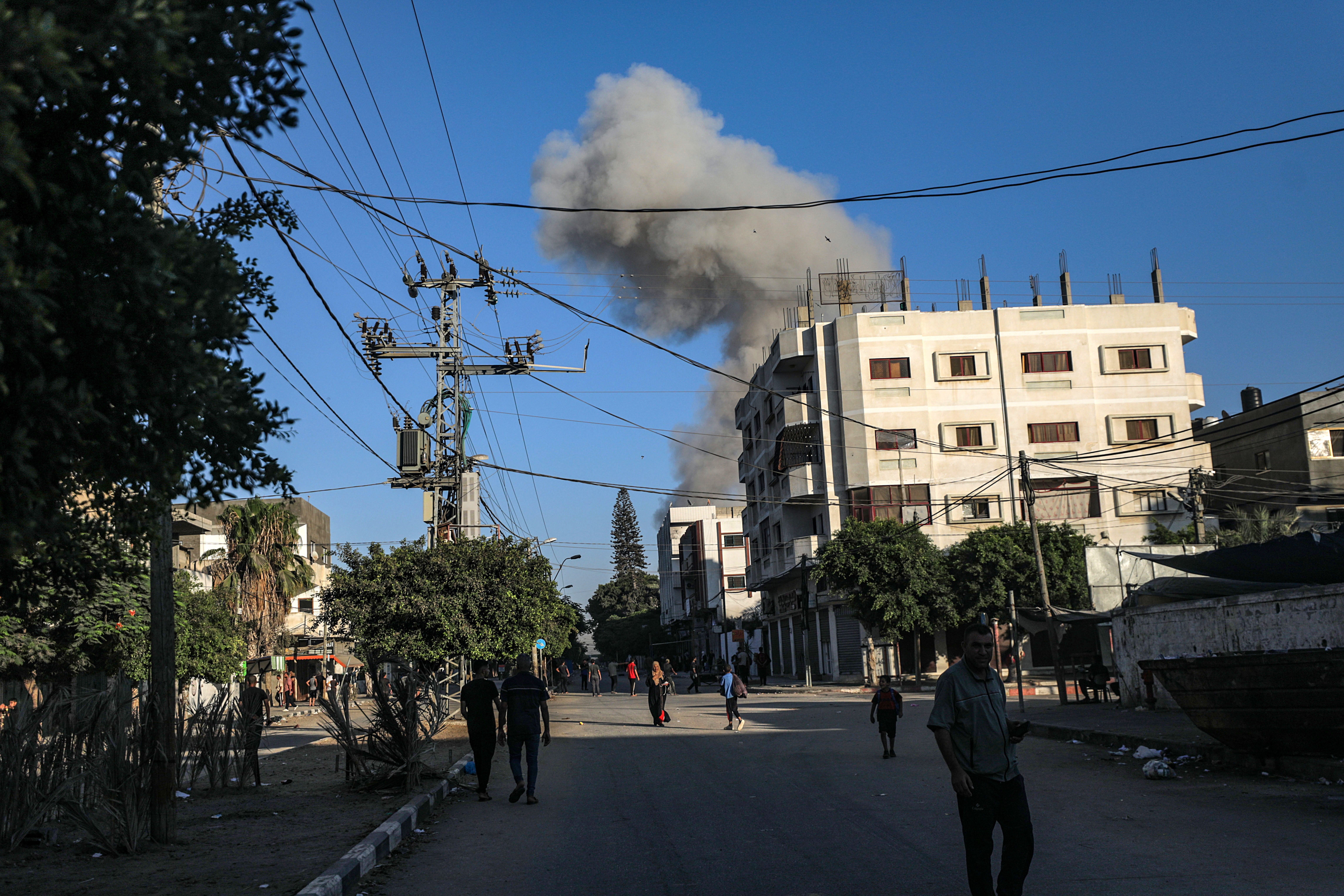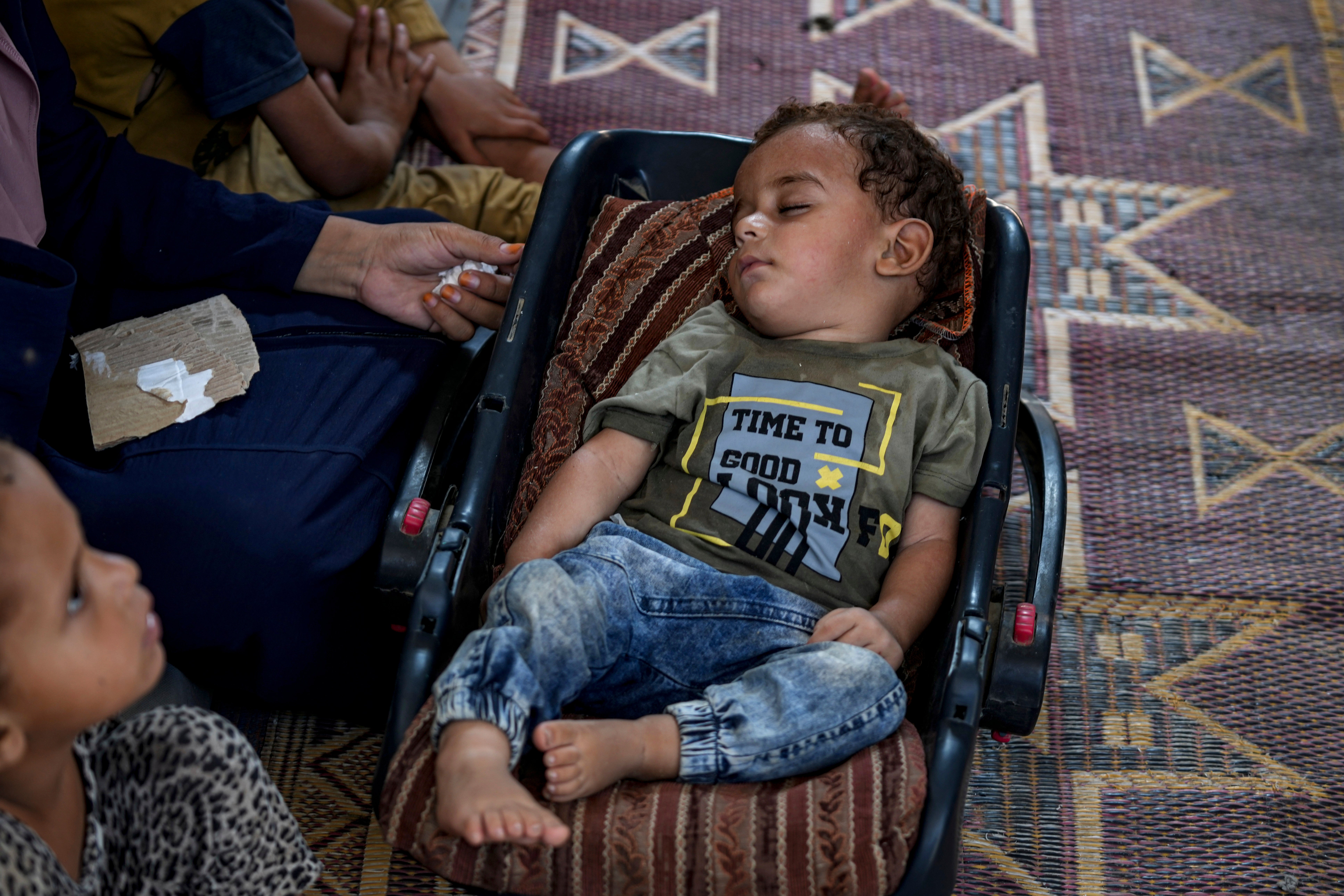WHO delivers 1.2m polio vaccine doses to Gaza as pauses in fighting agreed
The agreement comes after 10-month-old Abdel-Rahman was partially paralysed after contracting polio

Israel and Hamas have agreed to a series of pauses in fighting in Gaza to allow children to be vaccinated against polio, the World Health Organisation (WHO) has said.
The pauses will be rolled out in three separate stages across three separate zones of the besieged enclave. This will allow the first round of vaccination of 640,000 children against polio, senior WHO official Rik Peeperkorn said. The WHO said it had delivered 1.2m doses of polio vaccine to Gaza, with 400,000 more to follow.
It comes after 10-month-old Abdel-Rahman had been partially paralysed after contracting Gaza’s first case of polio in 25 years with reports of other suspected cases emerging.
The vaccination campaign is due to start Sunday in central Gaza, with the “humanitarian pause” scheduled between 6 am and 3 pm, Mr Peeperkorn said, adding that there was an agreement to extend the pause in each zone to a fourth day if needed.
A second round of vaccination would be required four weeks after the first round, Mr Peeperkorn said.
Aid agencies are anxious for the pauses to be successful after at least five people were killed on Thursday in an Israeli air strike on an aid convoy carrying fuel and medicine to a hospital in southern Gaza. The strike happened a day after a food convoy said it was shot at near an Israeli checkpoint.

The strike killed several people employed by a transportation company that the aid group was using to take supplies to the Emirates Red Crescent Hospital in Rafah, said Sandra Rasheed, Anera's director for the Palestinian territories.
The strike took place on Thursday on the Salah al-Din Road in the Gaza Strip and hit the convoy's first vehicle. "The convoy, which was co-ordinated by Anera and approved by Israeli authorities, included an Anera employee who was fortunately unharmed," Ms Rasheed said in a statement.
"Despite this devastating incident, our understanding is that the remaining vehicles in the convoy were able to continue and successfully deliver the aid to the hospital.”
Israeli military spokesman Lt Col Avichay Adraee tweeted that "gunmen seized a car at the head of the convoy (a jeep) and began driving".
"After the seizure operation and after confirming the possibility of attacking the militants' vehicle alone, the raid was carried out, as the rest of the convoy vehicles were not harmed and reached their target according to the plan," he said. "The operation to target the militants removed the risk of seizing the humanitarian convoy."
He added: "The presence of armed men inside a humanitarian convoy in an unco-ordinated manner makes it difficult to secure the convoys and their staff and harms the humanitarian effort."
The World Food Programme has since halted all staff movement in Gaza until further notice.
Israeli prime minister Benjamin Netanyahu said the series of three-day pauses was “not a ceasefire.” Robert Wood, the US deputy ambassador to the UN, urged Israel to avoid further civilian evacuation orders during the pauses and said workers need security to vaccinate children.
Aid agencies and medical professionals had long been warning of the potential for a polio outbreak in Gaza as thousands of babies born during the war had been unlikely to have received any immunisations due to the collapsed health system.

The WHO said health workers must vaccinate at least 90 per cent of children in Gaza to stop polio transmission.
Israel launched its military campaign in Gaza in response to a bloody attack inside Israel on 7 October by Hamas, during which about 1,200 people were killed and another 250 taken hostage. Israel’s Gaza offensive has killed more than 40,000 Palestinians, according to health officials in the Hamas-run strip. Around 90 per cent of Gaza’s population has been displaced, often multiple times and Israeli bombardment and ground operations have caused vast destruction.
Polio can cause disfigurement and paralysis and is potentially fatal. Immunisation rates in Gaza were excellent before the conflict with coverage estimated at 99 per cent in 2022.
Agencies contributed to this report
Join our commenting forum
Join thought-provoking conversations, follow other Independent readers and see their replies
Comments
Bookmark popover
Removed from bookmarks